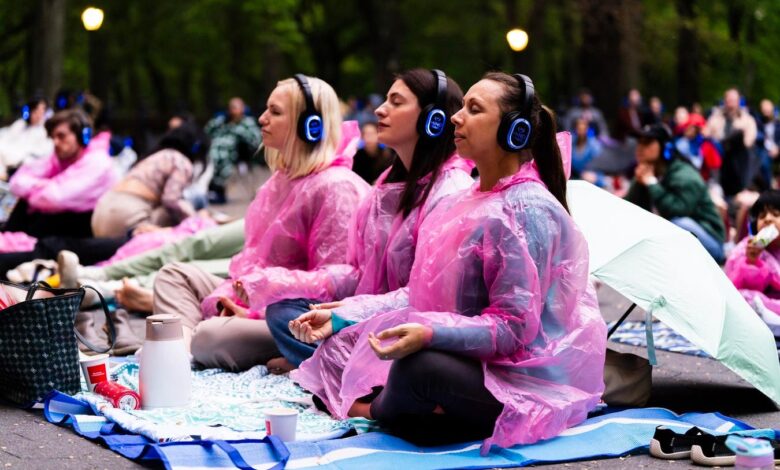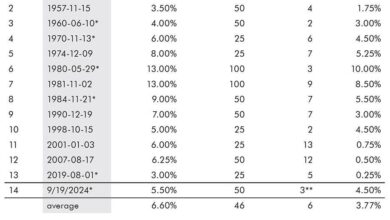The ‘Silent’ Concert Promoting Mindfulness Through Music

📝 usncan Note: The ‘Silent’ Concert Promoting Mindfulness Through Music
Disclaimer: This content has been prepared based on currently trending topics to increase your awareness.
MindTravel is a roaming piano concert designed to promote mindfulness and connection.
MindTravel
Strolling through Central Park on a weekday evening and you might stumble on a concert. Although something is discernibly missing—the sound of music. Look closer and you’ll notice everyone in the crowd is wearing headphones. It’s a silent disco, of sorts, but the music is a live classical concert performed by pianist Murray Hidary. “When the music is delivered directly into your ears, it feels like I’m playing just for you, even when you’re surrounded by hundreds of others,” says the pianist, explaining how the headphones create an intimacy atypical of a traditional concert. Keeping the concert “silent” gives Hidary the flexibility to bring the experience to unconventional spaces such as beaches, parks, and city streets. To date, his concert experience, MindTravel, has performed in over 100 cities around the world—from the deserts of the Middle East to the arctic tundra of Antarctica (the first piano concert of its kind on the continent).
Long before MindTravel made its way around the world, the idea was born from a quiet place in Hidary’s inner landscape. After the sudden loss of his sister, he turned to piano as a space of healing, reflection, and connection. “Music has always been my way of processing life’s deepest experiences—joy, grief, love, and everything in between,” says Hidary. “In those late-night improvisations, I discovered not just a tool for my own resilience, but a language that could help others move through their own inner landscapes.”
Murray Hidary was inspired to create MindTravel following the sudden loss of his sister.
MindTravel
His early vision was use the universal language of music to bring people together by performing intimate piano concerts in living rooms and small venues during which he would improvise for hours. Witnessing people drop into stillness, reflection, and presence, he realized music’s mindful nature, and decided to create more immersive forms of musical meditation. Hidary began performing silent outdoor concerts and hosting silent headphone walks, and noticed MindTravel was addressing a common condition—loneliness.
By providing a space where people can slow down and be present, MindTravel aims to help people tap into a sense of calm and belonging.
MindTravel
“We’re living in a world that’s more connected digitally, but often more disconnected emotionally—stress, burnout, and loneliness are at record levels,” says Hidary. In 2023, the U.S. surgeon general Vivek Murthy, M.D., declared the United States was facing an epidemic of loneliness. A year later, in a poll by the American Psychiatric Association, 30% of adults reported feeling lonely at least once a week in the previous year, while 30% of young people aged 18 to 34 reported feeling lonely every day. Music, can be an antidote, as it’s been found to promote social connectedness and emotional regulation, and concert attendance can increase empathy. By providing a space where people can slow down and be present, MindTravel aims to help people tap into a sense of calm, belonging, and expansiveness, that can help them find clarity and compassion.
“When I sit at the piano, it becomes a meditation in sound, guiding listeners into a similar state of awareness,” says Murray Hidary.
MindTravel
When the goal is to connect, it might seem counterintuitive to separate concert attendees with individual headphones. But the effect is the opposite, as people find connection by tapping into their inner world. “The result is a shared yet deeply personal experience—a community of people connected in silence, together, but also in their own reflective worlds,” explains Hidary.
The choice to improvise classical music is also strategic. The genre invites focus and contemplation, and its structure is balanced with improvisation, which creates a sense of flow and impermanence. “Together they mirror the qualities of mindfulness: presence, attention, and acceptance of each moment as it unfolds,” explains Hidary. The pianist’s choice of instrument also matters. “The piano is a remarkable instrument, it holds the full range of human emotion, from the most delicate whispers to the most powerful crescendos,” says Hidary. “When I sit at the piano, it becomes a meditation in sound, guiding listeners into a similar state of awareness.”
MindTravel uses headphones to encourage attendees to tap into their inner world.
MindTravel
The lack of division between the stage and audience also distinguishes MindTravel from your typical concert. Rather than it being a concert in which the artist performs and the audience listens, Hidary intends for MindTravel to be a participatory experience. The improvisation is shaped by the energy of the audience. “There’s a meditative arc to each journey, designed to open emotional doors, quiet the mind, and spark insights,” says Hidary. “People often tell me they walk away not just entertained, but transformed—lighter, calmer, and more connected.”
“We’re living in a world that’s more connected digitally, but often more disconnected emotionally,” says Murray Hidary.
MindTravel
With the success of their roaming concerts, MindTravel has expanded to offer a variety of mindful experiences on a monthly basis. For those who are unable to attend their in-person events, Hidary hosts live, virtual walking meditations (by donation or free) with the aim of fostering community. He also hosts floating meditation concerts at his home in Miami Beach, Florida. Hidary’s performance is broadcast through underwater speakers as participants float in a salt water pool heated to 95 degrees, to create the sensation of floating in the womb.
Hidary envisions hopes his music can catalyze presence, connection, and healing.
MindTravel
Energized by MindTravel’s impact and the continued demand for connection and mindfulness, Hidary is constantly thinking up the next immersive experience that can meet people where they are—in their cities, workplaces, and homes. With a background in tech, he is thinking about the intersection of art, technology, and wellness, with an idea to create virtual reality and interactive platforms that can bring the immersive nature of MindTravel to people anywhere in the world. “At the heart of it all is the same mission: to use music as a catalyst for presence, connection, and healing,” says Hidary.



